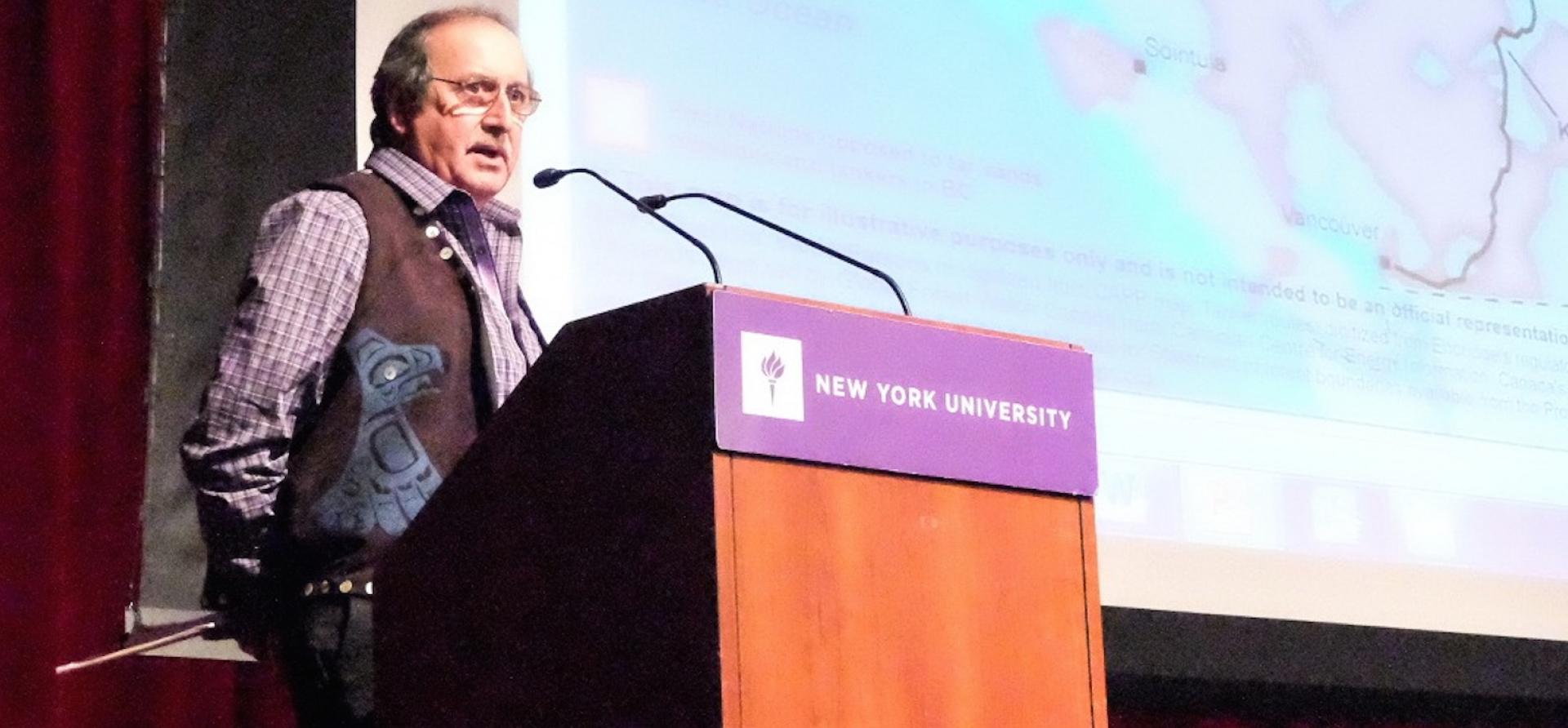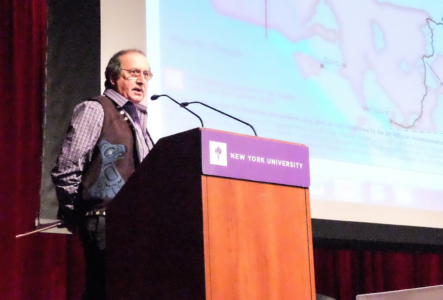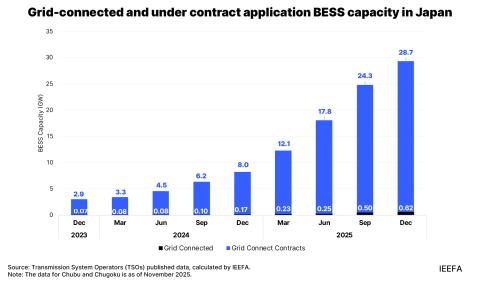Energy Finance 2015 Conference: A ‘Bloodbath’ Averted by Public Opposition to Coal Ports

In detailing the financial collapse of the U.S. coal industry, IEEFA’s Director of Finance Tom Sanzillo has noted this week during the Energy Finance 2015 conference at NYU that not only are U.S. coal companies losing money domestically but that their those companies’ high hopes for export potential have dropped significantly.
He has emphasized, too, the recent sharp decoupling between coal producers and GDP.
Sanzillo: “The United States economy is taking off and the coal industry is in the dumps, and that’s not supposed to happen. That’s a historically unprecedented situation, and to me it signifies a structural change.”
Failed U.S. coal-export expectations have been front and center during the four-day conference, which wraps up today (it is sponsored by IEEFA and the Institute for Policy Integrity at NYU’s School of Law).
Clark Williams-Derry of the Seattle-based Sightline Institute detailed how fast-changing market realities have combined with public opposition to derail several proposed ports in the Pacific Northwest. Williams-Derry said the coal industry should be grateful to the opposition because at current coal prices the losses associated with building those ports would have been “a bloodbath.”
Change has also come to the Gulf Coast.
Kia Ball, an Atlanta-based campaign coordinator for Public Citizen, part of the Clean Gulf Commerce Coalition, noted that Alabama, Louisiana and Texas have seen a total of five proposed coal-export terminals canceled in the past few years as seaborne coal markets have struggled. Ball said it is worth noting that public opinion on the coal industry is shifting across the Gulf Coast, an area of the country that has traditionally been more supportive of fossil-fuel industries.
WHAT HAPPENS TO COMMUNITIES THAT LOSE PLANTS AND MINES?
The conference has delved also into the economic pain felt by communities that are losing employers as the new energy economy gains momentum.

Tom Sanzillo: “Even though we’re winning our environmental battles, watching people with no opportunities and communities with very little future doesn’t sit well with me.”
Sanzillo: “Even though we’re winning our environmental battles, watching people with no opportunities and communities with very little future doesn’t sit well with me.”
Members of a panel that focused exclusively on the topic included Peter Hille, president of the Mountain Association for Community Economic Development in Berea, Ky., and Erin Heaney, executive director of the Clean Air Action Coalition of Western New York.
Hille and Heaney argued that campaigns to rebuild and sustain economies ravaged by the collapse of the coal industry can succeed only by involving rank-and-file citizens as well as community leaders in planning and advocacy, and by persuading them that a future without coal is possible. Both Hille and Heaney conceded that successfully imparting such a message is no easy task.
Hille noted that Kentucky’s coal-mining industry jobs have dropped from more than 100,000 in the 1950s to less than 20,000 today. He noted, too, that many towns and cities throughout Appalachia were economically distressed even before the coal bust, in part because their economic fortunes were so singularly tied to mining.
He said his organization and others have encouraged diversification of Kentucky’s economy through entrepreneurship initiatives, sustainable forestry and by identifying niche tourism opportunities.

Erin Heaney: “How are we going to provide a tax base for our community that doesn’t kill people and that provides family-sustaining wages and allows our community to remain vibrant.”
Heaney described the challenges faced by Tonawanda, N.Y., where NRG’s Huntley Coal Plant, which is at risk of closing, is a major polluter but also provides the community with well-paying jobs and a tax base for the public schools. She argued that no economic transition can be only about moving from coal to renewable energy.
Heaney: “How are we going to provide a tax base for our community that doesn’t kill people and that provides family-sustaining wages and allows our community to remain vibrant.” She credited IEEFA for its report “Huntley Generating Station: Coal Plant’s Weak Financial Outlook Calls for Corporate and Community Leadership,” which she said helped the coalition begin a conversation with union leaders, politicians and residents about pursuing an economically viable future without the plant.
AN ECONOMY DESIGNED ‘FOR THE NEXT 500 YEARS’

Art Sterritt of Coastal First Nations: “Within this region there are 30,000 jobs that depend on a healthy environment.”
Art Sterritt, executive director of Coastal First Nations International, a Vancouver-based alliance of native communities on British Columbia’s north and central coasts, spoke today on how grassroots organizations can help drive the new energy economy.
Sterritt noted that his group has been especially active in blocking Enbridge Inc. from building the proposed Northern Gateway pipeline from Alberta to Kitimate, B.C., where tankers would use coastal waters to export Canadian oil to Asia. He said that when the conversation about shipping oil from British Columbia first began, First Nations leaders noted the oil history of Alaska, where the Exxon Valdez spill did untold and lasting damage in 1989.
Sterritt said his group’s activism has been guided by the experience of Native Americans and Cajun communities in Louisiana, who warned that “if you ever let oil into your region, it will change your culture forever.”
“Culture is everything,” Sterritt said, adding that short-term profit-driven plans of oil companies have little chance of winning over most residents of coastal British Columbia. “Within this region there are 30,000 jobs that depend on a healthy environment. Our economy is being designed for the next 500 years, not for the next decade, not for the next couple of decades.”
Jim Flood is an IEEFA contributor.














